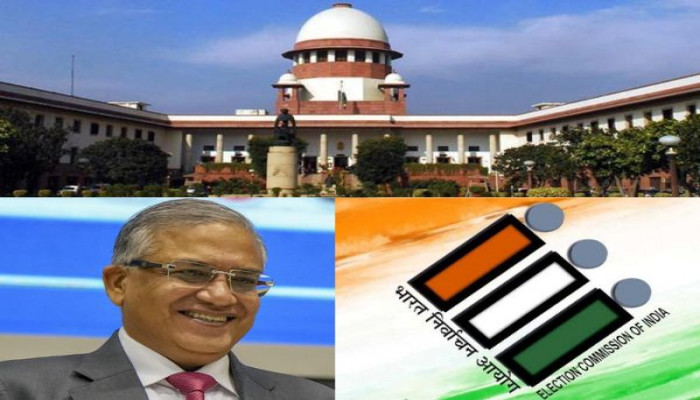Supreme Court to hear petitions on CEC and EC appointments on March 19
- In Reports
- 05:42 PM, Feb 19, 2025
- Myind Staff
The Supreme Court on Wednesday has scheduled the hearing of petitions challenging the legality of the Chief Election Commissioner and Other Election Commissioners (Appointment, Conditions of Service, and Term of Office) Act, 2023 for March 19, 2025. The law, which gives the central government a dominant role in appointing the Chief Election Commissioner (CEC) and Election Commissioners (ECs), has been contested for bypassing a previous Constitution Bench judgment.
The petitions challenge the 2023 Act, which replaces the Chief Justice of India (CJI) with a Union Minister in the Selection Committee responsible for appointing the CEC and ECs. This move overrides the Supreme Court’s ruling in Anoop Baranwal vs. Union of India, which mandated the inclusion of the CJI in the appointment process to ensure neutrality.
The case was brought forward by the NGO Association for Democratic Reforms (ADR), represented by advocate Prashant Bhushan. Bhushan emphasised the urgency of the matter, pointing out that the government had already appointed a new CEC and an EC under the disputed law, even as the petitions challenging it remain pending before the court.
On February 17, 2025, the government appointed Gyanesh Kumar as the new Chief Election Commissioner, making him the first CEC selected under the new law. His tenure is set to last until January 26, 2029, just before the announcement of the next Lok Sabha election schedule. Additionally, Vivek Joshi, a 1989-batch Haryana-cadre IAS officer, was appointed as an Election Commissioner, with his term extending until 2031.
On February 12, 2025, the Supreme Court had neither objected to nor prevented the government from making these appointments under the new law, despite the ongoing legal challenge. The court had also declined to stay the implementation of the Act, allowing the government to proceed with the appointments.
During the court proceedings on February 19, 2025, Prashant Bhushan urged an early hearing, arguing that the case was of “seminal importance” and could be concluded within an hour. However, the Supreme Court Bench, led by Justice Surya Kant, remained non-committal to scheduling the hearing before March 19.
The hearing on February 19 was further delayed after Solicitor General Tushar Mehta sought an adjournment, citing his engagement in a Constitution Bench hearing. Bhushan opposed the request, stating that a case of such significance should not be postponed due to the unavailability of one law officer, especially when 17 other law officers could represent the Union government.
The upcoming March 19 hearing will determine the legality of the 2023 Act and whether the Supreme Court will uphold or strike down the changes in the CEC and EC appointment process. With the issue drawing widespread attention, the court’s decision will have a significant impact on the independence of India’s Election Commission and the broader democratic framework.







Comments